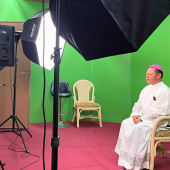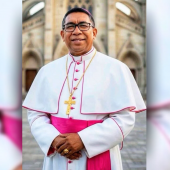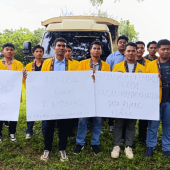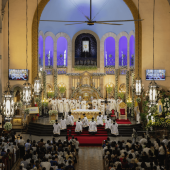Sri Lankan Bishop Maxwell Silva warns of false news masquerading as truth
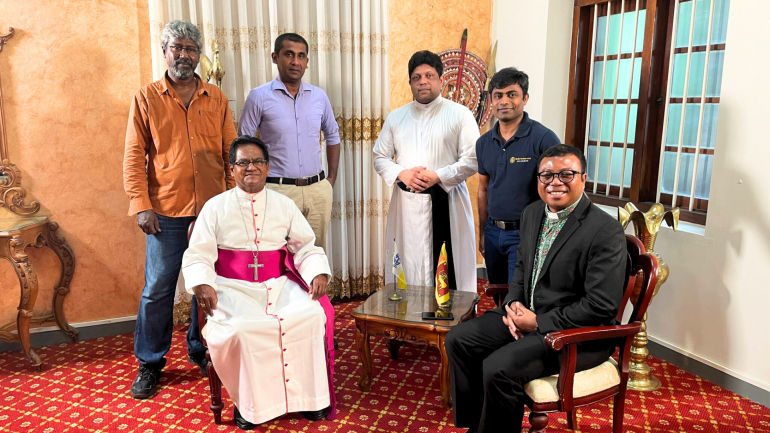
The advancement in communications technology offers people numerous opportunities and advantages, but people must be cautious in digesting content on social media, said a Sri Lankan bishop.
Colombo Auxiliary Bishop Sampathawaduge Maxwell Greenville Silva noted that most people, especially the youth, are actively involved in communication.
“Social media has many benefits,” he told Radio Veritas Asia journalist Fr. Kasmir Nemo. “It connects people globally and spreads information rapidly.”
However, Silva warned individuals about the detrimental effects of using modern communication technology to advance a malicious agenda.
“But it also has risks,” he said. “It can be exploited for political gain or misinformation.”
In 2022, disinformation circulated on social media claiming that protesters took over Rupavahini, the country’s national television network.
Unfortunately, some major news outlets bought this false information.
Some local netizens even claimed that the protesters took over the anchoring job at the station.
Massive protests in this democratic socialist republic broke out over its worst economic crisis in decades.
The protesters indeed forced their way into the presidential residence and broke into the prime minister’s office in Colombo after the embattled president fled overseas.
The television network’s assistant director and head of foreign news, Prasad Kaushalya Dodangodage, told the BBC on July 15, 2022, that the protesters stormed the station’s premises, asking for demands. After a discussion with the network’s heads, the protesters were given an interview.
The protesters left the television network after providing 15 minutes of airtime.
Despite the spirals of disinformation on social media, many people can distinguish between legitimate news and false news.
“Still, people are becoming more educated and aware,” Silva said. “I must also mention Radio Veritas Asia. Sri Lanka is one of its pioneer members, and we continue to have a strong relationship with them.”
The literacy rate in this South Asian country is 96 percent, he noted.
The Church plays a role in helping educate the people, Silva added.
He was appointed bishop in charge of education. For seven years, he worked with schools across dioceses. He visited over 120 schools during the period.
Silva is currently the chair of the Office of Communications of the Sri Lankan Bishops’ Conference.
Colombo is home to about 750,000 Catholics and several Catholic schools that are inclusive, Silva pointed out.
These schools “are not just for Catholics, but also for Buddhists, Hindus, and Muslims,” he said. “The administration is Catholic, and our schools are known for discipline. Even non-Catholics appreciate the Christian education we offer, and people want their children to benefit from it.”
Silva sees educating the people as one of the key ministries of the inclusive and working church and is deeply involved in it.
“Education is vital in Sri Lanka, as it is in India,” he said. “I tried my best in this role. Now, I’m working in social communication, and I’ve accepted that responsibility, too.”
Radio Veritas Asia (RVA), a media platform of the Catholic Church, aims to share Christ. RVA started in 1969 as a continental Catholic radio station to serve Asian countries in their respective local language, thus earning the tag “the Voice of Asian Christianity.” Responding to the emerging context, RVA embraced media platforms to connect with the global Asian audience via its 21 language websites and various social media platforms.









